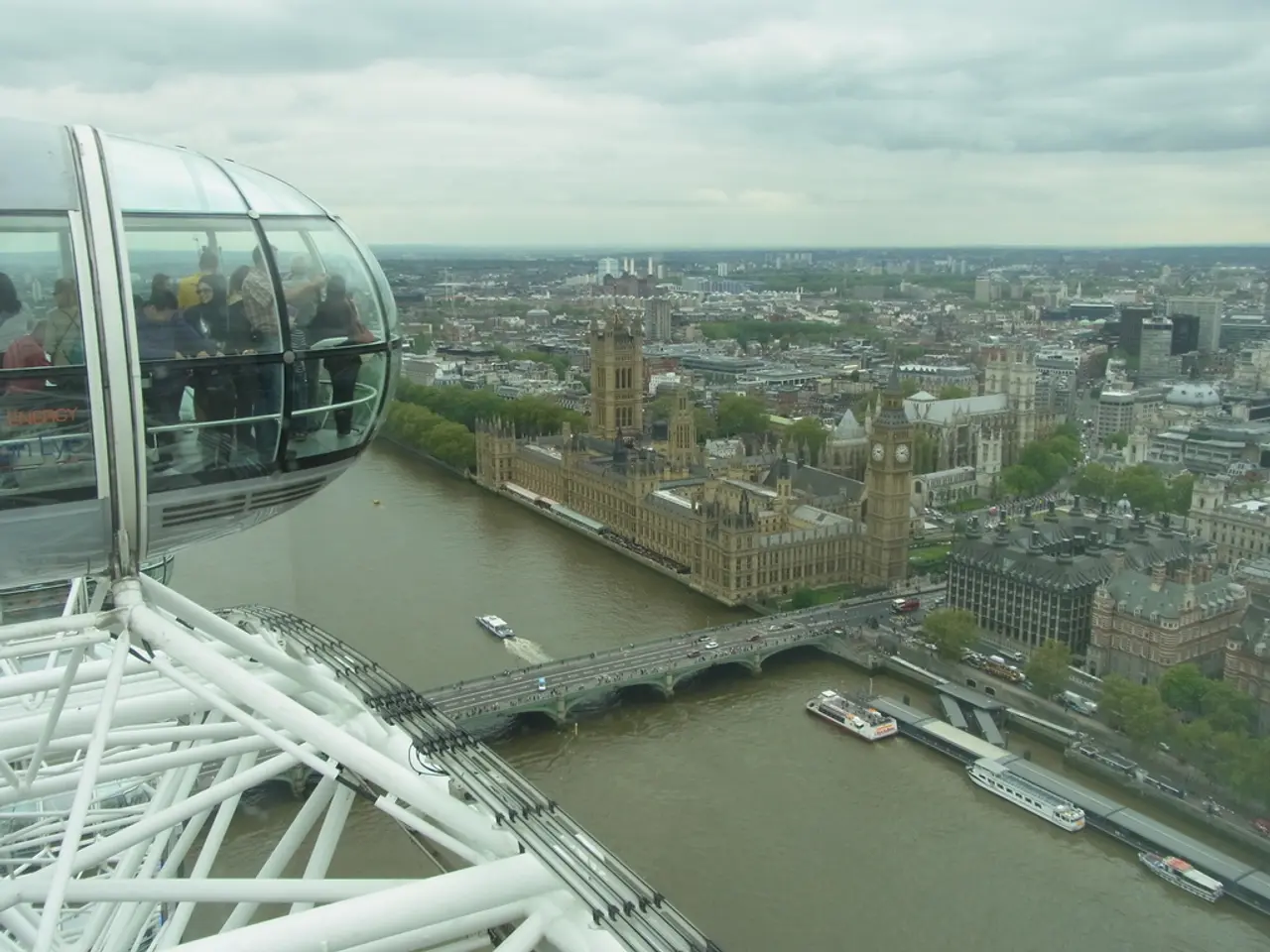English research reveals that heritage positively impacts mental health and wellness
New Research Reveals Significant Impact of Local Heritage on Wellbeing
A groundbreaking report titled "Heritage Capital and Wellbeing: Examining the Relationship Between Heritage Density and Life Satisfaction" was launched today at The Wellbeing and Heritage Conference in Northampton. The research, produced by Historic England and funded by the Culture and Heritage Capital Programme of the Department for Culture, Media and Sport, highlights the economic value of local heritage and its positive effects on mental health, social interaction, and neighborhood satisfaction.
Adala Leeson, head of social and economic research at Historic England, emphasized the value of heritage and the importance of conservation efforts made by volunteers, community groups, and the heritage sector to protect historic places. She stated that the research demonstrates the significant impacts of heritage on overall wellbeing.
The research used economic techniques to demonstrate the link between heritage and wellbeing. It revealed that heritage density in a neighborhood fosters strong community ties and opportunities for social interaction, which directly correlate with higher life satisfaction and psychological well-being.
Local heritage assets increase walkability and provide recreational and cultural spaces that promote active lifestyles, especially for aging populations. This active engagement with heritage-rich environments supports aging in place and community involvement.
The preservation and accessibility of local heritage contribute not only to cultural identity but also to measurable improvements in quality of life. These factors combine to form "heritage capital," which supports well-being and life satisfaction in economic terms through increased livability, social cohesion, and mental health benefits that reduce healthcare and social costs.
Lord Neil Mendoza, chairman of Historic England, stated that this research provides robust economic evidence that heritage makes a significant contribution to people's quality of life. He also mentioned that this is the first research to quantify the wellbeing value of the very existence of heritage, whether or not people participate in heritage activities.
The research estimates the overall wellbeing value for people's encounters of heritage to be worth £29bn. It provides compelling economic evidence to support the advocacy for heritage. The report also marks the beginning of a series of economic research projects produced by Historic England.
The research investigated the impacts of different types of heritage, including listed buildings, scheduled monuments, protected wrecks, registered parks and gardens, battlefields, and world heritage sites. The example given by Lord Mendoza is that the value of £515 a year could be attributed whether someone interacts with a small civic museum or a village church, or not.
In conclusion, everyday local heritage represents a valuable asset whose economic value is expressed in enhanced life satisfaction and well-being among residents by integrating cultural, social, and environmental advantages into daily life.
[1] Historic England (2022). Heritage Capital and Wellbeing: Examining the Relationship Between Heritage Density and Life Satisfaction. Retrieved from https://historicengland.org.uk/research/heritage-and-economy/heritage-and-wellbeing/ [2] Department for Culture, Media and Sport (2022). Culture and Heritage Capital Programme. Retrieved from https://www.gov.uk/government/publications/culture-and-heritage-capital-programme [3] HM Treasury (2018). Green Book: Appraisal and Evaluation in Central Government. Retrieved from https://www.gov.uk/government/publications/green-book/chapter-1-the-green-book [4] The Wellbeing and Heritage Conference (2022). The Wellbeing and Heritage Conference. Retrieved from https://www.wellbeingandheritage.com/
- The report "Heritage Capital and Wellbeing: Examining the Relationship Between Heritage Density and Life Satisfaction" reveals that regeneration of environmental-science assets, such as historic buildings and parks, bolsters community ties, fostering mental health and overall health-and-wellness.
- Lord Neil Mendoza, chairman of Historic England, stated that the research proves the economic value of civic heritage sites, like museums and churches, in enhancing residents' wellbeing, even if they do not actively participate in heritage activities.
- The study suggests that by investing in the preservation and accessibility of local heritage, we can promote social cohesion, improve mental health, and foster a sense of community, thereby contributing to the interconnected web of wellbeing, environmental-science, and civic health.




